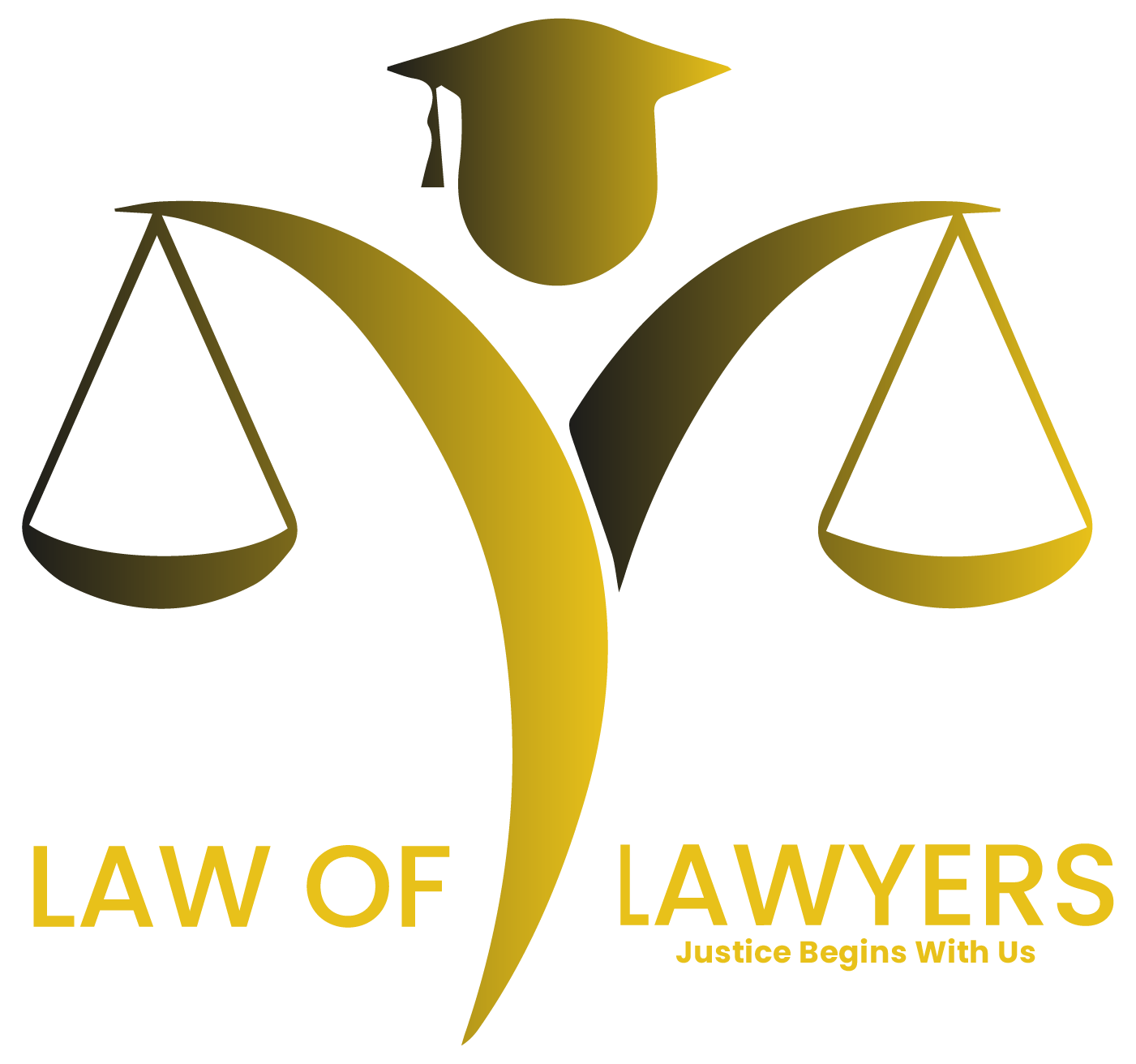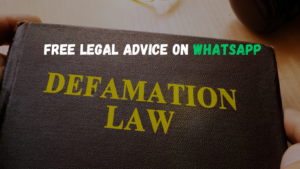Defamation Law in Pakistan | Law Of Lawyers
In Pakistan, a defamatory act is defined as destroying or diminishing the reputation or respect of a person/association/group/company. A person’s intellectual capacity can be degraded and humiliated by gossiping, spreading rumors’, making false allegations, malicious prosecution, abusive language, insulting, backbiting, or “backstabbing,” whether the person is directly attacked, their family, their business, their friends, or their caste.
Here, we discuss how the Pakistani laws on defamation can be implemented and explain the related legalities. We will also examine their punishments, sequences, and chances of success. For more information, contact our Law Of Lawyers.
What is the process for filing a defamation suit in Pakistan?
You may sue someone for defamation if you feel they have defamed you. Pakistan allows you to sue the person who made the defamatory statement for libel. To file a defamation suit, you must identify the person who made the statement. The next step is to gather evidence to support your claim. For example, the person who made the defamatory statement may have left you a written statement. You may need to testify in Court unless you find such a statement.

The Laws of Defamation in Pakistan
According to the Gazette of Pakistan, the Defamation Ordinance was published in 2002, covering defamation laws in Pakistan. The Ordinance emphasized online bullying and effective remedies and guidelines for enforcement and punishment.
According to the Supreme Court of Pakistan, Islam regards the right to honour as sacred. That means not only should the violation be punished and compensated, but it must also be prevented. On the one hand, the victim is protected, but on the other hand, those who violate it must be held accountable (Citation: 2008 SCMR 1118).
As defined in Section 499 of the Pakistan Penal Code, defamation refers to the act of making or publishing any imputation concerning any person intending to [them], or knowing or having reason to believe such imputation will harm the reputation of such person, is said [to] defame that person by either speaking or writing or by signs or by visible representations”.
What are the consequences of defamation?
Defamation in Pakistan is punishable by up to two years in prison and a fine of up to 500,000 Pakistani rupees (about US$2,500). Intentionally publishing false information is defined as harming the reputation of another person. Libel and slander are both types of defamation. Imagine the victim is a public figure, such as a politician or celebrity. If that is the case, the perpetrator must also prove that they made defamatory statements with malice, which means they knew or acted recklessly, disregarding the truth.
Even though defamation is technically a criminal offence, it is often difficult to prosecute successfully. If defendants cannot prove their statements were factual or argue that they made them in good faith and without malice, they can avoid conviction. In this way, defamation suits are often used to silence critics instead of securing justice. Especially in Pakistan, libel laws have repeatedly been used to stifle dissent and curtail freedom of expression. For example, journalist Iftikhar Ahmad was sued for libel for writing a critical article about Pakistan’s intelligence services in 2011.
Defamation according to Pakistani Law
All matters relating to defamation accrued in Pakistan are covered by the Defamation Ordinance 2002:
Defamation is defined in Section 3 of the Defamation Ordinance 2002
- If a wrongful act, publication or circulation of a false statement or representation in words or pictures injures a person’s reputation, lowers his estimation by others or reduces him to ridicule, unjust criticism, dislike, contempt or hatred, it will be considered defamation.
- There are two types of defamation: (i) slander and (ii) libel.
- False oral statements and representations that amount to defamation are actionable as slander.
- Libel is actionable in any case where false or defamatory written or visual statements are made through ordinary methods or expressions, electronic communication devices, or any other modern means.
Defamation is actionable under Section 4
Defamation is an actionable wrong without proof of special damage to the person defamed; where defamation is proven, damage is presumed.
Section 5 of the Code of Criminal Procedure makes provisions for defenses to the law of defamation.
A person can defend himself against defamation if he shows:
- The statement complained of was not written, edited, published, or printed by him;
- A fair and public interest matter was discussed and expressed as an opinion rather than an assertion of fact.
- Based on truth, it serves the public interest.
- The plaintiff consented to the publication.
- The defendant offered to publish a proper apology, but the plaintiff refused
- The plaintiff refused to print or publish a contradiction or denial in the same manner and with the same prominence.
- This was a matter of privileged communication between a lawyer and a client.
- A matter is covered by absolute or qualified privilege.
According to Section 7, certain things are exempt from defamation: Qualified Privilege: Publications of parliamentary and judicial proceedings attended by the public and statements made to the appropriate authorities to obtain redress of public grievances will be protected by qualified privileges.
According to Section 8, the plaintiff must give the defendant a notice of action before any legal action can be brought against the defendant. For the plaintiff to bring an action, he must provide the defendant fourteen days’ written notice of his intention to bring an action within two months after the defamatory matter was published, describing the defamatory matter complained about.
In the event of defamation, Section 9 provides remedies: Remedies: Should defamation be proven to have occurred, the Court may order that the defendant submit an apology to the plaintiff and, if acceptable, publish the apology in a similar manner and with the same prominence as the defamatory statement, and pay a reasonable amount of compensatory damages. A minimum of Rs. fifty thousand will be paid as general damages in the event of defamation.
In section 10, Defamation proceedings are mutatis mutandis subject to the CPC and Qanoon-e-Shahadat Order.
This Ordinance does not preclude any action for criminal defamation under any law currently in force.
Section 12: Limitations on actions against:
- An author, editor, publisher, or proprietor of a newspaper;
- Owner of a broadcasting station;
- The newspaper’s or broadcast station’s officer, servant, or employee;
- Any other individual.
The person defamed may take legal action for defamation contained in the newspaper or broadcast from the station or published otherwise within 6 months of the publication of the defamatory matter.
The District Court shall try cases under this Ordinance.
A case under this Ordinance shall be decided within 90 days by the Court.
By section 15 of the Act, an appeal against the final decision and decree of the Court may be brought to the High Court within 30 days, and the High Court shall decide the appeal within sixty days.
Appeals against interlocutory orders of the Court are not permitted.
Related Case Example
As reported by news reports, acting Punjab governor and speaker of the provincial assembly Malik Ahmad Khan, a member of the Pakistan Muslim League-Nawaz party, approved the defamation law passed on May 20 despite opposition lawmakers, journalists, and human organizations’ concerns.
Organizations and journalists are challenging this law in the Lahore High Court. The law amends Punjab’s Defamation Ordinance, 2002, to include social media platforms under “defamation.”
IN SEARCH OF PAKISTANI DEFAMATION LAWYERS
Our lawyers are available in the following cities in Pakistan
- Karachi
- Islamabad
- Rawalpindi
- Azad Kashmir
- Lahore
- Sialkot
- Gujranwala
- Multan
- Gujrat
- Faisalabad
- Sahiwal
As well as other major cities in Pakistan. Get a free consultation from us.
FAQS
What is the definition of defamation in Pakistan?
False statements that harm an individual’s reputation are protected by Pakistani defamation law, encompassing both slander and libel. An individual who intends to sue for defamation must prove the falsity of the statement and the harm caused by it.
How do slander and libel lawyers help?
Libel and slander attorneys assist in collecting evidence, assessing the case, and pursuing legal action against those who make false statements that harm a person’s reputation.
Why is a social media defamation defense so crucial?
In social media defamation cases, platforms such as Facebook and Twitter can rapidly spread false information, damaging an individual’s reputation. Legal assistance can address and remedy these situations.
How do you pursue defamation lawsuits in Pakistan?
A defamation lawsuit in Pakistan typically involves consulting a lawyer, gathering evidence, and filing a complaint in the appropriate Court. The merits of the case will be determined through legal proceedings.
How do cyber-defamation experts protect clients?
A cyber defamation lawyer navigates the complexities of online defamation, identifies perpetrators, and takes legal action to remove defamatory content. They can also seek damages for the harm they have caused.
What role do defamation compensation lawyers play?
Lawyers who specialize in defamation compensation represent clients seeking financial compensation. They assist clients in recovering compensation for reputational losses by assessing damages, negotiating settlements, and representing them in Court.

